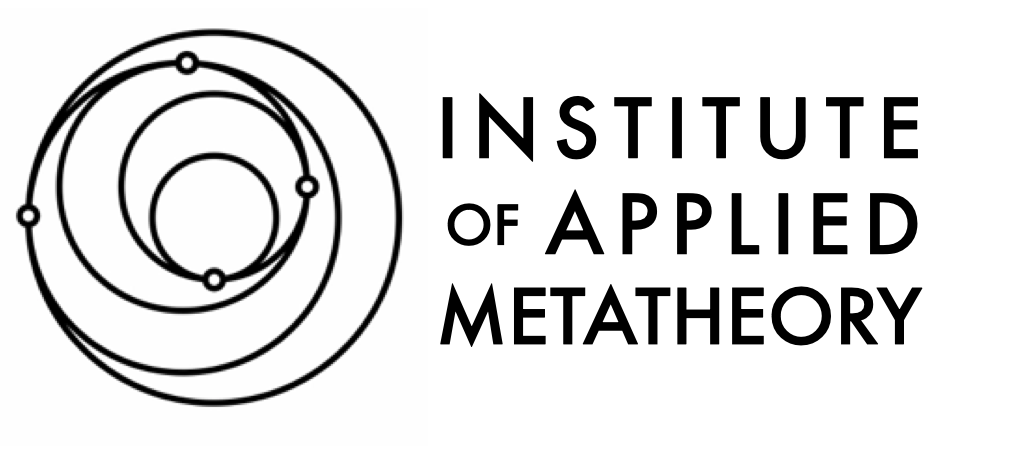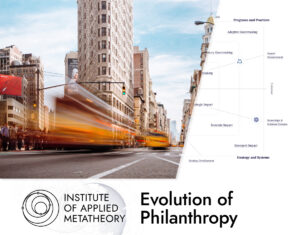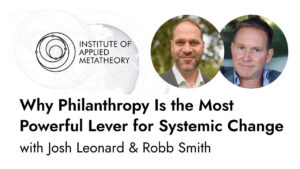
Problem Identified
Philanthropy today sits at a pivotal crossroads. Across the globe, foundations and philanthropic leaders are investing vast resources to address complex, persistent, and often interwoven crises—climate breakdown, democratic erosion, growing inequality, and widespread cultural fragmentation. These are not isolated problems; together, they reflect what more and more big picture thinkers are recognizing as a civilizational metacrisis—a breakdown in the systems, sensemaking, and social cohesion that underpin a thriving society.
Philanthropy has a unique role to play in responding to this moment. Free from the short-term pressures of markets or politics, it has the potential to be one of society’s most powerful vehicles for long-term transformation. But to realize that potential, philanthropy itself must evolve.
Many foundations today operate from within the logics of either strategic philanthropy (focused on measurable outcomes and efficiency) or empowerment philanthropy (centered on equity, justice, and community voice). Each of these paradigms has contributed important gains. But neither is fully adequate to the complexity of the current moment.
We believe a third, more developmentally mature approach is now emerging—integrative philanthropy. This next stage does not reject what came before, but seeks to transcend and include it: combining the rigor and accountability of strategic approaches with the justice and participation ethos of empowerment models, while adding new capacities for systems thinking, integrative leadership, and transformative change.
The metacrisis demands this more integrative approach—one that can hold systems and stories, rigor and meaning, power and perspective. It demands a level of developmental maturity in philanthropic practice that shifts beyond the limits of what previous paradigms were able to hold.
Approach
This initiative begins by mapping the evolution of philanthropy in three stages across eight core lines of practice—strategy, leadership, culture, funding models, and more. This model is designed to help philanthropic leaders understand where their institution currently operates and what growth might look like.
The first phase of the initiative will focus on socializing this developmental map through a standalone website that introduces the model, shares examples, and invites philanthropic leaders to locate themselves within it.
In the second phase, the initiative will develop a suite of concrete, practice-oriented toolkits—one for each developmental line—to help foundations and funders apply the model to their own work. These toolkits will offer developmental diagnostics, strategic frameworks, and organizational practices designed to support the evolution toward integrative philanthropy.
IAM consultants will work directly with select partners to pilot and refine the model, support implementation, and co-develop real-world use cases that demonstrate what integrative philanthropy looks like in action.
Transformational Thesis
Our metatheory of change is that philanthropy, if it is to rise to the challenge of the metacrisis, must become more developmentally sophisticated—internally and externally. Internally, this means cultivating organizational cultures, leadership, and learning systems capable of adaptive, integrative sensemaking. Externally, it means developing more nuanced and coherent metatheories of change that reflect the nested, emergent, and interdependent nature of today’s most urgent challenges.
By applying integrative metatheory to philanthropic strategy and practice, we believe it is possible to significantly expand the field’s capacity for transformation—not just in the problems it addresses, but in the way it understands and approaches its role in the world.
What’s at Stake
For any one foundation, what’s at stake is its ability to make meaningfully transformative impact in a time when legacy approaches are increasingly falling short. As the complexity and urgency of global challenges increase, so too will the need for funders who can think systemically, act developmentally, and lead with wisdom and coherence.
For society, what’s at stake is whether philanthropy can fulfill its deeper promise—not just to do good, but to help catalyze the long-term transformation our world now requires. Philanthropy may not be able to solve the metacrisis on its own. But without it, we will not have the vision, leadership, or resources we need to begin.
Success Benchmarks
- That philanthropic leaders recognize the developmental nature of their work and use the Evolution of Philanthropy model to guide internal and strategic development
- That the toolkits developed through this initiative are adopted and adapted by institutions seeking to evolve their practices and organizational culture
- That new philanthropic networks, collaborations, and experiments emerge, guided by integrative principles
- That institutions working with this model report greater clarity, alignment, and impact in their efforts to address complex, systemic challenges
- That “integrative philanthropy” becomes a meaningful and resonant term within the field, signaling a new horizon for the sector
Support Requests
We are currently seeking:
- Philanthropic thought leaders who are willing to provide feedback and insight on the Evolution of Philanthropy model and its potential applications in the field.
- Leaders of philanthropic institutions interested in advancing this evolution within their own organizations and willing to partner with IAM consultants to pilot the toolkit-based approach.
- Donors and funders committed to this next stage of philanthropic practice who are looking to directly support the emergence of integrative philanthropy by investing in IAM as an institution.
If you see yourself—or someone in your network—in any of the above, we’d love to connect.


